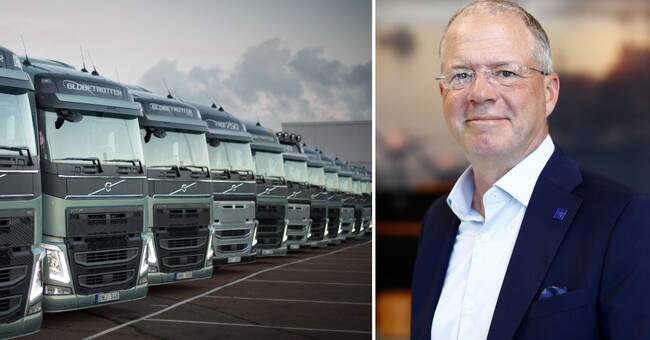Vehicle manufacturer AB Volvo reports an operating profit of just over SEK 12 billion for the fourth quarter of the year.
Despite the pandemic and all the problems it has caused, it is 2.8 billion more than last year's profit in the same period.
"Going for high pressure"
- They have done much better than what it looked like this spring.
Demand for trucks is high and Volvo's factories are running at high pressure again.
The only thing that does not seem to have lifted properly yet is the bus production, says SVT's financial commentator Kristina Lagerström.
It does not look like there will be any further staff reductions, on the contrary, Volvo is now talking about hiring new employees.
Although sales in the fourth quarter fell slightly, the Group received many new orders.
- We are surprised by the speed of recovery, says CEO Martin Lundstedt.
According to the CEO, the fact that Volvo can sum up the pandemic year 2020 as "strong" is due to the fact that the company has been quick to change.
- We have worked very intensively in the group to create flexibility solutions.
Entire organizations have done a good job in terms of compliance.
Billion rain over the shareholders
AB Volvo's Board of Directors proposes a dividend to shareholders of a total of SEK 15 per share, divided into SEK six in ordinary dividends and SEK nine in extra dividends.
Last year, the dividend was suspended, partly as a result of the Group receiving more than SEK 1 billion in government redundancy support when the corona crisis hit and Volvo's factories stood still for a while.
Six months later, it intends to distribute SEK 30 billion to shareholders.
It is money that partly comes from the taxpayers.
Many people think it is outrageous, but it is according to the rules, says Kristina Lagerström.
Volvo's CEO Martin Lundstedt:
- The government put in a broad support with the redundancy system.
It should be seen as a collective support for the national economy.
It's not just support for companies.
With the results in hand, we see that it has worked in a way that has been good for Swedish jobs, the Swedish labor market and not least for the Swedish economy.

